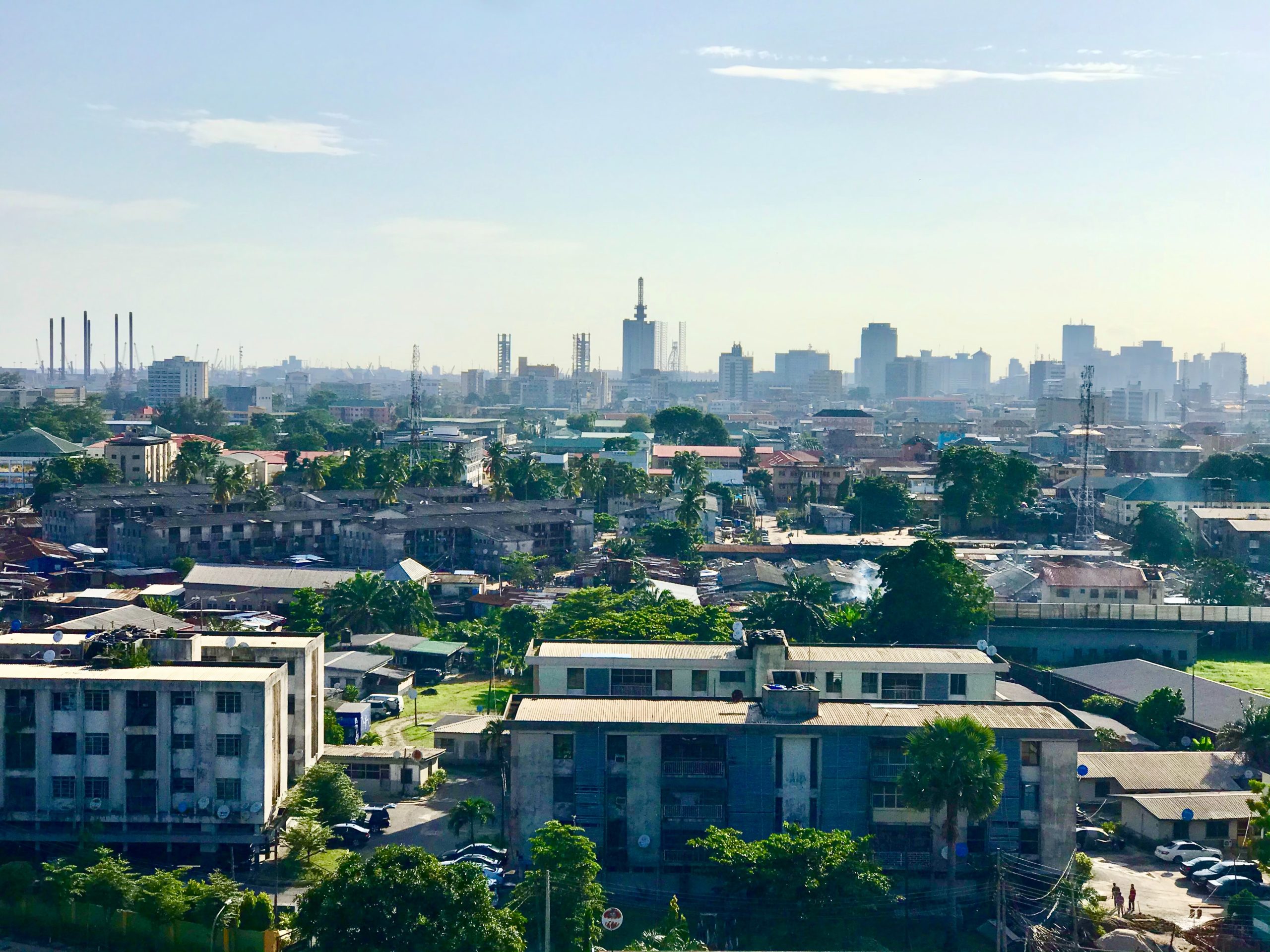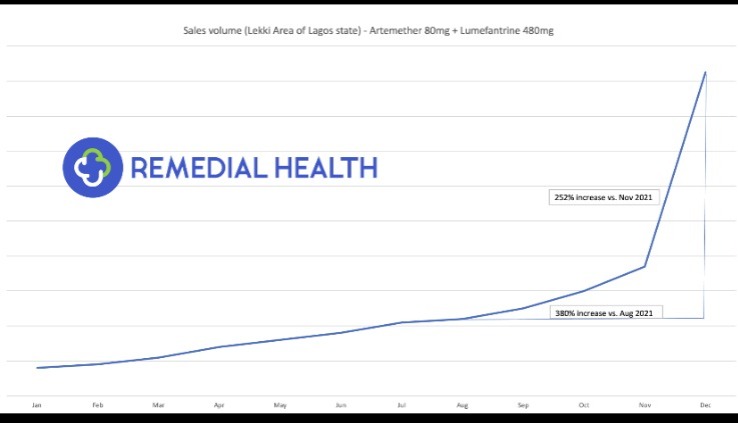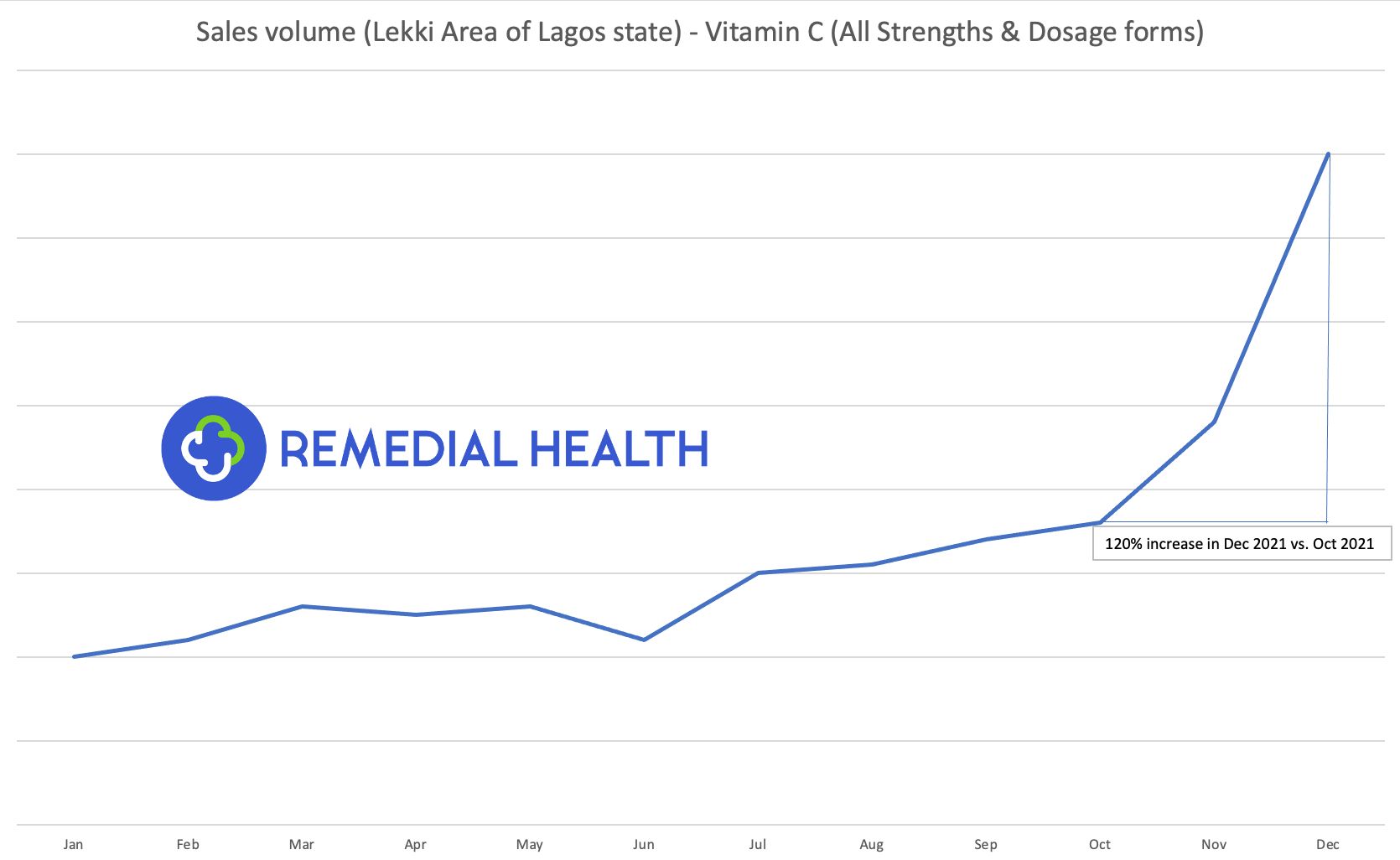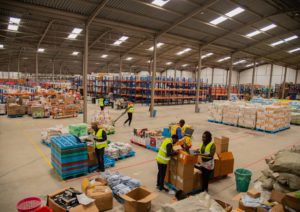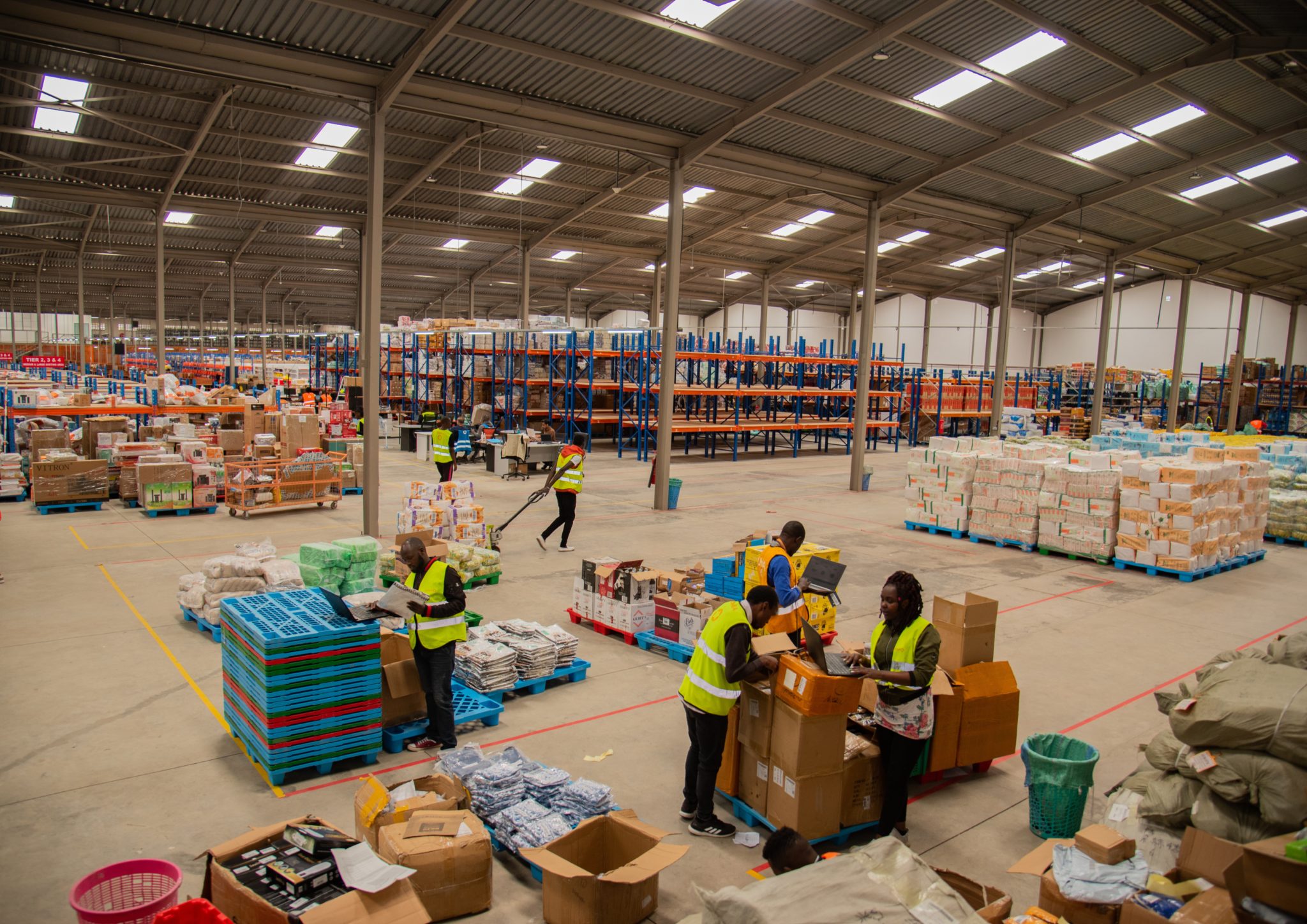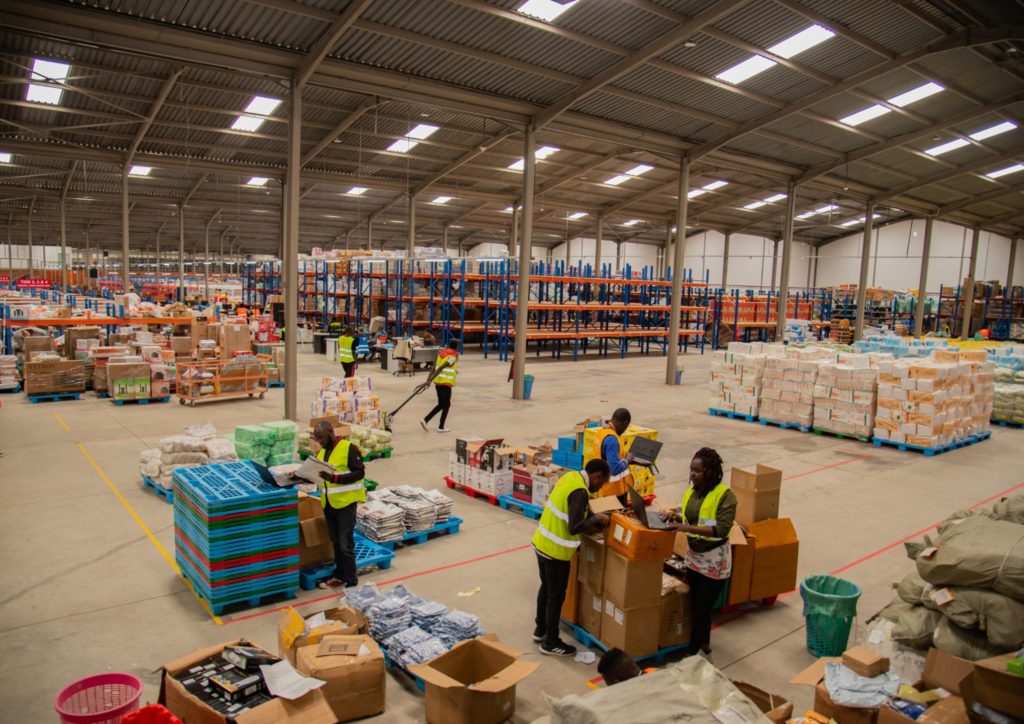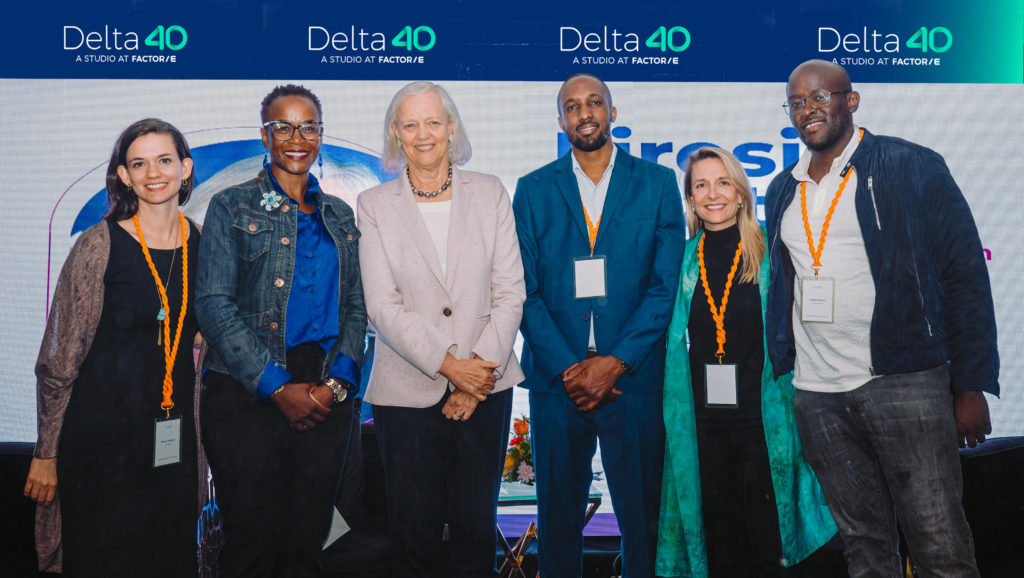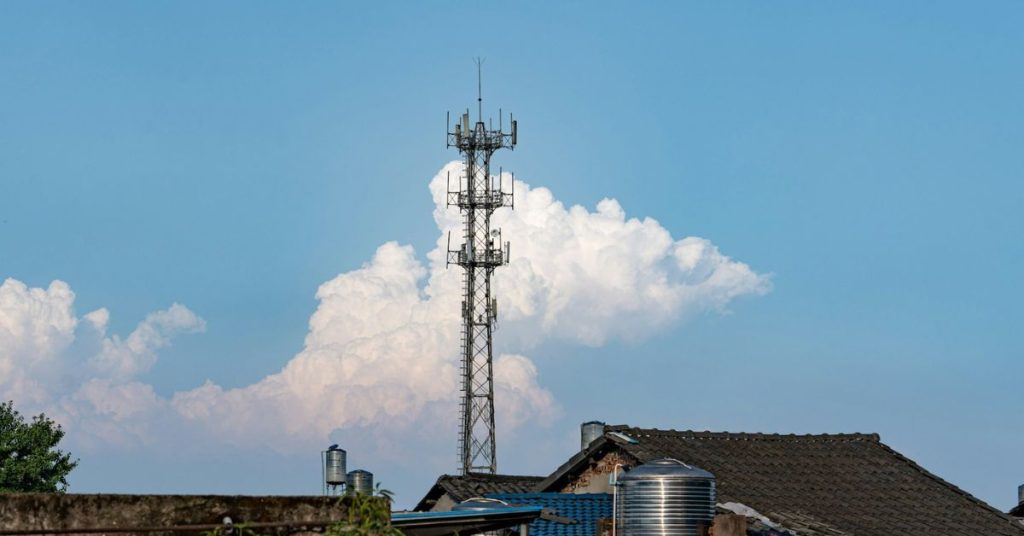Adaobi* is a 24-year-old software engineer living with her 49-year-old mother Oge* at Lekki Phase 1, in Lagos, Nigeria. On the morning of January 1 this year, she complained of a sore throat and took some Strepsils for it. By the next morning, however, her sore throat got worse—and her mother began to feel an itch in hers as well.
Both women went to the hospital and there tested positive for COVID-19. They were then placed on medication and advised to self-isolate. Now, their gateman Bosun*, who must have caught the virus from them, thought he had malaria and got on antimalarial medications. But, after a week, his symptoms persisted, so he decided to switch medicines to honey, ginger, and turmeric mixed in hot water, as advised by a friend.
According to the National Centre for Disease Control (NCDC), Nigeria entered the 4th wave of COVID-19 in December, reporting 223,887 cases and 2,985 deaths in its 36 states and federal capital Abuja. This is an over-500% increase.
The surge in COVID-19 cases during the December festive period may be attributed to 2 major factors: the mass of unquarantined people that came into Nigeria from abroad, especially into Lagos; and the several crowded gatherings where social distancing practices were not observed.
In the case of Adaobi and her mother, Adaobi had attended several crowded outdoor activities in December and her mother had just returned from a business trip in Europe, so it’s difficult to determine who infected who.
Like Bosun, many Nigerians are ignorant of the symptoms of COVID-19. On top of that, many people do not see a doctor whenever they feel sick, preferring instead to self-medicate, with the belief that they have “ordinary malaria”. This is what’s currently happening in Lagos and, according to Remedial Health, a healthtech startup that improves access to original medicines by creating a direct supply chain between retailers and manufacturers or registered distributors, Lekki Phase 1—one of the highbrow areas of Lagos—is at the center of it all.
Remedial Health founder and CEO, Samuel Okwuada, told TechCabal over a call that their company saw a 250% increase in orders for anti-malarial drugs in December last year from pharmacies and chemists in Lekki Phase 1.
“It started around November but peaked in December. We noticed that customers in Lekki Phase 1 that would normally order 20 packs of antimalarial drugs for sale within 3–4 days were now ordering 60–70 packs every 1–2 days,” said Okwuada. “When we asked the manufacturers for more products and they told us they’d reached their production limit, we realised this is more serious than we thought.”
Drugs like Artemether & Lumefantrine and Vitamin C saw about 250% and 130% increase, respectively, in demand. This continual spike in demand of antimalarial drugs—which is still happening—led Remedial Health to investigate the cause. Their conversations with pharmacists on the frontline suggests that some of the symptoms reported by customers are more consistent with COVID-19 than malaria.
A sore throat is not indicative of malaria but it is one of the major symptoms of COVID-19.
“The number of COVID-19 cases in Lekki is overwhelming. When these people come to the clinic, they always complain of malaria but test positive for COVID-19,” said a lab scientist who works at a testing centre in Lekki and who spoke to TechCabal anonymously.
Another resident of Lekki Phase 1 jokingly said he suspects everybody in Lekki has the virus already. “That’s an old story now. It’s just another malaria symptom,” he said.
The importance of data in combating the virus
It’s no more news that healthcare institutions around the globe are using data to design better pandemic responses and train frontline staff. Without appropriate data, misinformation and conspiracy theories about the virus will flood the media and undermine efforts to sensitise the public.
The World Health Organisation’s director-general, Tedros Adhanom Ghebreyesus, once said, “We’re not just fighting a pandemic; we’re fighting an infodemic.”
Governments across the world are using data to drive COVID-19 innovation to mend the economic stress, misinformation, and division the virus has unleashed on the world. In Nigeria, the Global Partnership UNECA worked with the country’s National Bureau of Statistics (NBS) to create a comprehensive data hub to show where cases of COVID-19 were occurring and what support might be needed.
In Togo, the government is using artificial intelligence, via GiveDirect-Novissi COVID-19 Aid, to collect and collate data of the poorest communities in order to provide them with contactless financial aid through mobile money.
According to a Reuter data, COVID-19 infections are decreasing in Nigeria, with 94 new infections reported on average each day. That’s 5% of the peak—the highest daily average reported on December 27. Okwuada, the lab scientist and some Lekki residents that spoke to TechCabal believes that these numbers are underreported and that is evident from the case of people like Bosun. Where’s their own number? However, even though data is not a direct antidote to the virus and not always correct, Okwuada believes it’s a strong fighting instrument. He said data is essential to curbing the spread of the virus and, possibly, ending the disease altogether.









